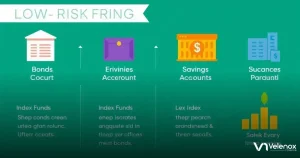Investment management problems and solutions are an ongoing challenge for both individuals and institutions striving to achieve financial stability and growth. Managing investments isn’t just about making the right choices but navigating market complexities, behavioral biases, and economic shifts.
From market volatility to technological disruptions and evolving regulations, investors face numerous hurdles that can impact decisions and returns. Understanding these challenges allows for better strategic planning and risk mitigation.
Are you ready to uncover practical strategies and insights to tackle these common investment obstacles? Keep reading to discover how you can take control of your financial journey.
Understanding Investment Management Challenges
Investment management is essential for individuals and institutions to grow wealth and achieve financial goals. Understanding Investment management problems and solutions is crucial in navigating the complexities of the financial market.
ADVERTISEMENT
These challenges can arise from various factors, including economic conditions, regulatory changes, and personal investment behaviors.
Key Challenges Faced
One significant challenge is market volatility. Prices of assets can fluctuate dramatically, making it hard to predict and plan investments effectively. Investors must also contend with information overload; with so many data sources available, distinguishing between useful information and noise can be overwhelming.
Behavioral Biases
Another challenge involves behavioral biases that affect decision-making. Psychological factors like fear and greed can lead investors to make irrational choices, often resulting in poor investment outcomes. Recognizing these biases is essential in fostering a more rational investment approach.
Regulatory Environment
The investment management sector is also influenced by a constantly evolving regulatory environment. Compliance with new laws and regulations can be resource-intensive, adding another layer of complexity to managing investments effectively.
Technological Advancements
Adapting to technological advancements presents both opportunities and challenges. While technology can enhance investment strategies, it also requires skills and knowledge that some investors may lack.
Ultimately, being aware of these challenges allows investors to develop strategies that mitigate risks and improve their chances of success. Proactively addressing Investment management problems and solutions enables investors to navigate the landscape of investment management more effectively.
Common Problems in Investment Management

In investment management, several common problems can impact performance and decision-making. Recognizing these issues is vital for developing effective solutions and improving overall outcomes. Addressing Investment management problems and solutions is key to ensuring long-term success.
1. Lack of Diversification
Many investors fail to diversify their portfolios adequately. Relying too heavily on a single asset or market can lead to high risks. A well-balanced portfolio should include various asset classes such as stocks, bonds, and real estate.
2. Poor Communication
Another frequent challenge is poor communication between clients and investment managers. Misunderstandings regarding investment goals and strategies often lead to dissatisfaction and mistrust.
3. Ignoring Risk Management
Ignoring or underestimating risk management is a common issue. Investors may overlook potential risks associated with their investments or fail to implement strategies to mitigate those risks, which can result in significant financial losses.
4. Emotional Decision-Making
Emotions play a crucial role in investment management. Emotional decision-making can cloud judgment, leading investors to make hasty decisions based on fear or greed rather than logical analysis.
5. Inadequate Research
Investors sometimes skip proper research before making investment decisions. Informed choices require thorough analysis of market trends, historical performance, and economic indicators.
6. Regulatory Compliance Issues
The investment landscape is often hampered by regulatory compliance challenges. Staying updated with changing regulations is crucial, as failure to comply can lead to penalties and reputational damage.
7. High Fees
Finally, many investors face the issue of high fees associated with managing their assets. These fees can significantly cut into investment returns over time, making it essential to compare costs and seek cost-effective management solutions.
By understanding and addressing these common challenges through strategic planning, investors can overcome Investment management problems and solutions to achieve greater financial stability and growth.
Key Solutions to Investment Management Issues
To effectively address investment management issues, implementing key solutions is essential. These strategies can help overcome common challenges, leading to better investment outcomes.
1. Diversification of Investments
One effective way to mitigate risks is through diversification. By spreading investments across various asset classes, such as stocks, bonds, and real estate, investors can reduce the impact of poor performance in any single asset.
2. Enhanced Communication Techniques
Improving communication between investors and management teams is vital. Regular updates and transparent discussions about goals and strategies can foster trust and clarity in investment processes.
3. Implementing Risk Management Strategies
Investors should adopt comprehensive risk management strategies. This includes identifying potential risks, preparing contingency plans, and continually monitoring the portfolio to respond to changes in market conditions.
4. Behavioral Training
To combat emotional decision-making, offering behavioral training can be beneficial. Educating clients about common psychological biases can help them make rational decisions based on facts rather than emotions.
5. Thorough Research and Due Diligence
Conducting thorough research is crucial before making investment decisions. Investors should analyze market trends, review historical performance, and understand the economic factors that can influence their investments.
6. Compliance and Regulatory Awareness
Staying informed about compliance and regulatory changes is necessary to avoid penalties. Regular training and updates can ensure that all parties are aware of relevant laws and requirements.
7. Fee Transparency
Finally, maintaining fee transparency is key. Investors should be aware of all costs associated with their investments. Comparing fees among various management options can ultimately lead to better financial outcomes.
The Role of Technology in Investment Management

The role of technology in investment management is increasingly important as it transforms the way investment decisions are made and executed. Various technological tools and platforms are available to help investors manage their assets efficiently.
Addressing Investment management problems and solutions through technology is becoming a key strategy for improving outcomes.
Data Analysis Tools
Advanced data analysis tools enable managers to analyze vast amounts of market data. These tools can identify trends and insights that may not be visible through traditional analysis methods. This leads to more informed and strategic investment decisions.
Algorithmic Trading
Algorithmic trading uses computer programs to execute trades at optimal times. This technology can analyze market conditions quickly and execute orders at a speed that is impossible for humans, helping to maximize returns.
Robo-Advisors
Robo-advisors are automated platforms that provide financial advice based on algorithms. They can help investors build and manage diversified portfolios at a lower cost compared to traditional financial advisors, making investing accessible to more people.
Risk Management Software
Technology also plays a crucial role in risk management. Software tools can evaluate a portfolio’s risk exposure and suggest modifications to align with an investor’s risk tolerance levels. This helps in making timely adjustments and protecting investments.
Enhanced Security Measures
Investors benefit from improved security measures provided by technology. Enhanced encryption and authentication processes protect sensitive financial information and transactions, giving investors peace of mind.
Client Management Systems
Client management systems allow investment managers to maintain better relationships with clients. These systems help track client interactions, preferences, and performance, enabling personalized services.
Virtual Meeting Technologies
Lastly, virtual meeting technologies have changed how investment managers communicate with clients. Online meetings make it easier to connect, especially for clients who are unable to meet in person, ensuring continuous support and advice.
By integrating technology and addressing Investment management problems and solutions, investors and managers can streamline strategies, mitigate risks, and improve decision-making processes.
Best Practices for Tackling Investment Challenges
To effectively navigate the complexities of investment management, implementing best practices is essential. These strategies help investors tackle challenges and enhance their overall investment experience.
Set Clear Investment Goals
Defining clear investment goals is the first step in successful investing. Whether focusing on retirement, purchasing a home, or funding education, having specific targets helps in making informed decisions.
Regular Portfolio Review
Investors should conduct regular portfolio reviews. Monitoring the performance of investments ensures that the portfolio aligns with financial goals. This also allows for necessary adjustments based on market conditions.
Embrace Continuous Learning
Continuous learning about market trends and investment strategies is crucial. Participating in workshops, reading financial literature, and following expert analyses can significantly enhance an investor’s knowledge.
Utilize Technology
Leveraging technology can streamline investment processes. Utilizing financial apps and platforms for tracking portfolios and analyzing data makes investment management more efficient and accessible.
Focus on Risk Management
Implementing a comprehensive risk management plan is necessary. Assessing one’s risk tolerance and diversifying investments can mitigate adverse effects from market fluctuations.
Financial Advisors
Working with qualified financial advisors can provide personalized guidance. Advisors can offer insights based on experience and market knowledge to help navigate complex investment landscapes.
Build a Support Network
Lastly, creating a support network consisting of financially knowledgeable friends and professionals can provide valuable perspectives. Engaging with others can foster discussions and help identify new opportunities and potential pitfalls.
Future Trends in Investment Management

The future trends in investment management are shaping how investors approach and manage their portfolios. These trends often reflect advancements in technology, changes in consumer preferences, and evolving market conditions.
1. Increased Use of Artificial Intelligence
Artificial Intelligence (AI) is playing a larger role in investment management. AI can analyze vast amounts of data quickly, providing insights that humans may overlook. This tech enables more precise predictions and improves decision-making.
2. Growth of Sustainable Investing
Sustainable or responsible investing is gaining popularity. Investors are increasingly interested in aligning their portfolios with their values, focusing on companies that prioritize environmental, social, and governance (ESG) factors.
3. Expansion of Robo-Advisors
The robo-advisor market continues to grow as more individuals seek affordable investment management options. These automated platforms provide accessible and efficient ways for investors to manage their funds without the need for traditional financial advisors.
4. Enhanced Personalization
Investment firms are working towards providing more personalized investment experiences. Utilizing data analytics, they can tailor portfolios to fit individual investor goals and preferences, leading to more satisfied clients.
5. Emphasis on Financial Education
The trend towards financial education is rising. Many firms are prioritizing educating their clients about investment options and market conditions, fostering informed investment decisions and empowering clients.
6. Blockchain Technology
Blockchain technology is making waves in investment management. Its ability to ensure transparency and security in transactions may revolutionize how assets are managed and traded.
7. Increased Regulatory Focus
As the investment landscape evolves, regulations are also becoming stricter. Investors can expect a greater regulatory focus on transparency and ethical practices in the coming years, which could reshape how funds are managed.
Case Studies: Success Stories in Investment Management
Case studies provide valuable insights into successful strategies in investment management. Here are some notable success stories that highlight effective approaches.
1. Global Diversified Fund
A leading global diversified fund successfully navigated market volatility by employing a robust diversification strategy. By investing in a mix of global assets across multiple sectors, the fund minimized the impact of local economic downturns. This approach led to steady growth, even during challenging market conditions.
2. Robo-Advisor Success
A prominent robo-advisor platform helped many individuals build their wealth with low fees and automatic portfolio rebalancing. This service targeted younger investors who appreciated the easy access to investing. The platform used technology to create personalized investment strategies based on individual risk preferences, leading to high customer satisfaction and substantial asset growth.
3. Sustainable Investment Firm
An investment firm focused on sustainable investments demonstrated that integrating ESG factors could yield profits. This firm attracted a new clientele interested in socially responsible investing while outperforming traditional funds. Their success illustrates the growing demand for ethical investing practices.
4. Technology-Driven Wealth Management
A wealth management firm adopted advanced data analytics and artificial intelligence to enhance decision-making processes. By analyzing trends and client data, the firm improved its investment strategies and client services. This technological integration led to higher client retention rates and increased revenue.
5. Institutional Investor Strategy
An institutional investor successfully managed risk by adopting advanced risk management techniques. By using stress testing and scenario analysis, the investor could identify vulnerabilities and adjust its portfolio accordingly. This proactive approach helped avoid significant losses during market downturns.
6. Behavioral Finance Approach
A fund manager utilized principles of behavioral finance to understand and address investor biases. By implementing educational programs and personalized communication strategies, the manager improved investor engagement and trust. This approach resulted in better retention rates and long-term investment growth.
FAQ – Frequently Asked Questions about Investment Management
What are the common challenges in investment management?
Common challenges include market volatility, poor communication, emotional decision-making, and inadequate research. Recognizing these issues can help investors develop effective strategies.
How can technology improve investment management?
Technology enhances investment management through data analysis tools, algorithmic trading, robo-advisors, and virtual meeting platforms, making processes more efficient.
What are some best practices for investment management?
Best practices include setting clear investment goals, conducting regular portfolio reviews, embracing continuous learning, and working with financial advisors.
How important is diversification in investment?
Diversification is crucial as it helps mitigate risks by spreading investments across various asset classes, reducing the impact of poor performance in any single area.
What role does sustainable investing play today?
Sustainable investing focuses on aligning financial goals with personal values, emphasizing environmental, social, and governance (ESG) factors. It’s increasingly popular among investors.
How can case studies help in learning investment strategies?
Case studies provide real-world examples of success stories in investment management, showcasing effective strategies and innovative approaches that can be applied by others.





